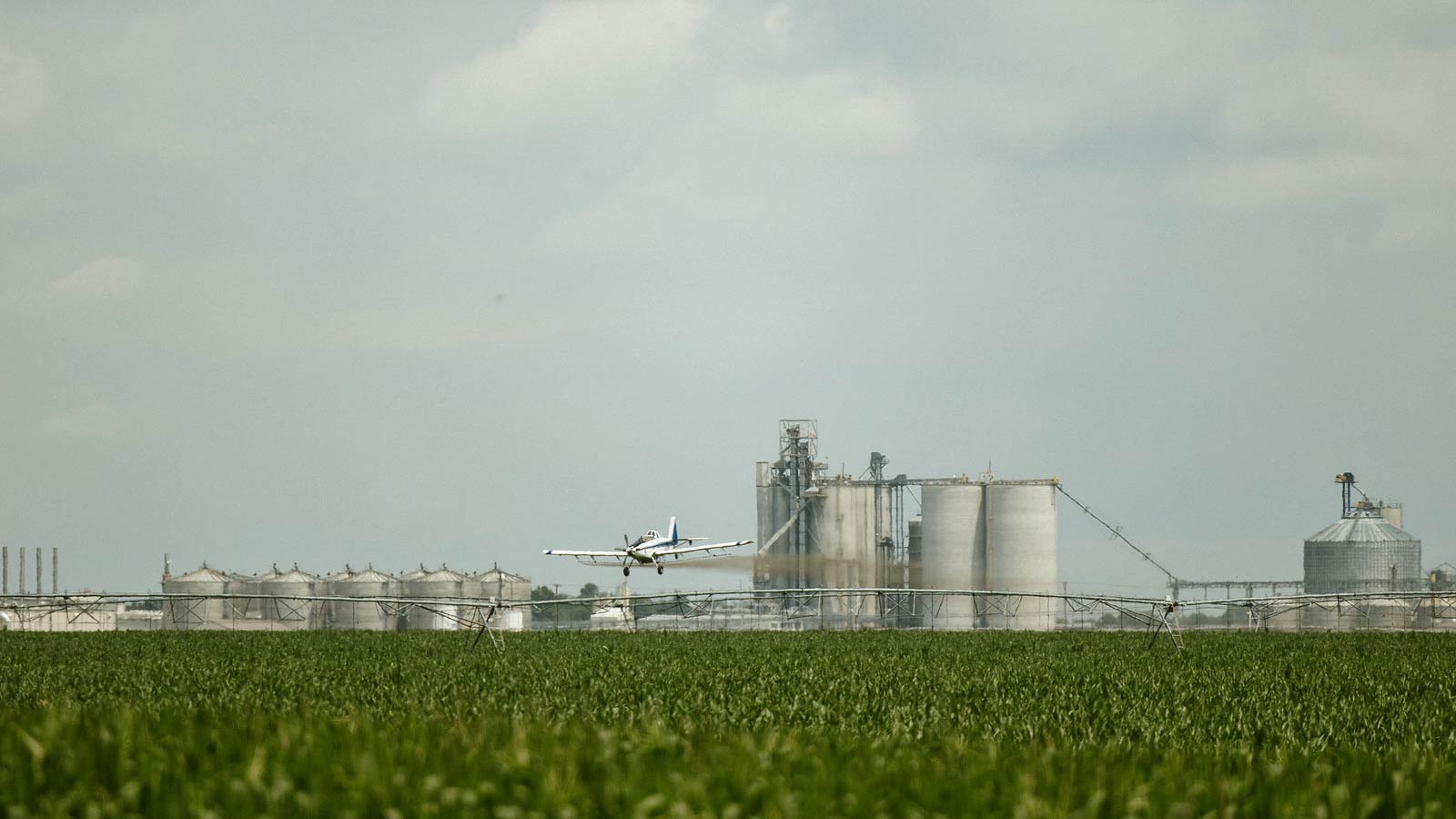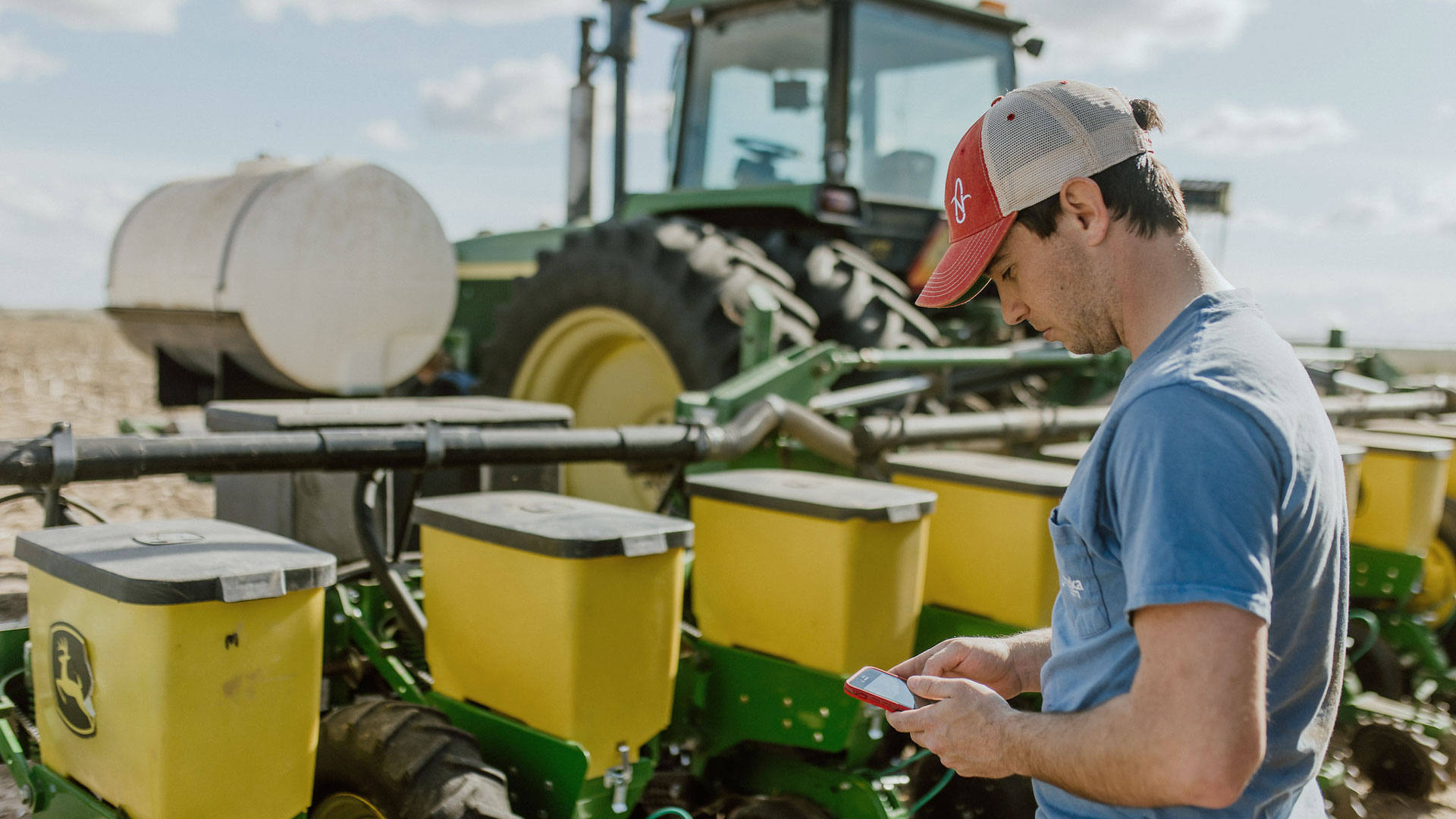When many people think about jobs related to corn, they immediately think of the men and women who grow and harvest the crop. While that makes sense—corn farmers are at the core of the industry—the truth is, there’s many careers in agriculture beyond farming.
Today’s agricultural industry requires jobs of all kinds, from administrative jobs to hands-on skill trades to scientific research. This variety enables people interested in agriculture to work alongside or in conjunction with corn growers and other farmers, ranchers and livestock producers without owning an acre of land or driving a tractor.
What Can I Expect in an Agricultural Career?
The agricultural industry is so important to everyday life—providing much of the food we eat, products we use and fuel for our vehicles—that there’s almost no limit to the different career paths available. Non-farming agricultural workers do important work such as providing informational support to farmers, analyzing market trends, giving legal advice and even help get equipment fixed and back in the fields.
It’s not necessary to live in a rural area to be involved in agriculture. While many ag-related jobs are located at companies in rural communities around the country, there’s also opportunities to work in agriculture at businesses, agencies and educational institutions based in major metropolitan areas.
Here are 11 in-demand careers in agriculture that don’t involve raising crops:
1. Farm Manager
A farm manager uses agricultural expertise to oversee the operations of farms or manage farmland for the landowners. They often represent the landowner in the same way a rental management company would manage an apartment building for a landlord.
Farm manager duties may include finding and managing tenants who rent farm ground, crop planning, certain purchases and may include helping tenants with marketing crops and other activities. They also can oversee other aspects of land stewardship, repairs or improvements, keeping track of expenses and taking care of taxes for the landowners. Average salaries for farm managers range from $47,000 to $91,000.
2. Welder
One of the skilled trades with many uses in agriculture is welding, which is the process of using heat to fuse pieces of metal together. Welders can work on a wide variety of projects, such farm equipment, bins and silos, storage tanks, irrigation equipment and fencing such as gates and livestock holding pens. They also can be employed by agricultural manufacturing companies. The median salary for welders and other metal workers is $47,010.
3. Agricultural Equipment Technician
Repairing and servicing farm vehicles and equipment is an integral part of the farming process. In addition to mechanical skills and knowledge of how farm equipment works, many ag technicians also have knowledge of hydraulics, welding and know-how to work on diesel engines.
Some agricultural technicians work at a shop like an automobile mechanic, while others are field technicians who travel to wherever the malfunctioning equipment is located. The average salary for an agricultural technician is $49,930 although some can be statistically higher depending upon location and company.
4. Federal Government Employee
While many think of federal jobs as being based in Washington, D.C., there’s also a wealth of farm-related federal employment opportunities located in communities around the country. United States Department of Agriculture (USDA) employees run programs that provide services such as agricultural lending, disaster recovery programs to mitigate crop damage and connecting aspiring farmers with resources to help launch their careers. Other federal employees run programs that help farmers improve soil and water quality. Salaries vary by position.
5. Agronomist
An agronomist is a specialized professional in the field of agronomy, which focuses on soil management and crop production. As crop scientists, they provide expert advice and support to farmers about soil health and disease prevention. They also help farmers increase the quantity and quality of their crops. On average, an agronomist can make between $56,000 to $110,000 per year.
6. Livestock veterinarian
Livestock such as cattle are major consumers of corn and other agricultural products, so it’s no surprise that veterinarians who work on livestock—sometimes referred to as large animal veterinarians—are a critical part of agriculture. Though it’s an extremely demanding profession, there’s already not enough veterinarians to meet demand in the United States—and this shortage is expected to get worse. Veterinarians are so important to agriculture that the USDA offers a college loan repayment plan for livestock vets who work in areas lacking animal medical services. Annual average salaries for veterinarians range from $62,000 to $160,000.
7. Agricultural Economist
Agricultural economists analyze markets, prices and trends for research institutions, government agencies, consulting firms and agribusiness companies. They also conduct research and collect data about agricultural production and consumption of ag products. Some ag economists evaluate the impact of government policies on agriculture, make recommendations on how farmers can maximize profits and provide finance or marketing advice to ag companies. Salaries for agricultural economist jobs usually run between $70,000 to $80,000, though some economists make more than $100,000.
8. Seed Sales Representative
Seed salesmen sell seed to corn farmers and other crop growers. They often work for major agribusiness companies as sales reps, selling that company’s particular brand of seeds. They make sales calls, build relationships and must have an in-depth knowledge of the strengths of the seed varieties they are selling. Average salaries for seed sales rep jobs are advertised in the $70,000 to $80,000 range, often with the opportunity to earn additional bonuses.
9. Agricultural Lawyer
An agricultural lawyer plays a crucial role in providing legal advice and support to farmers, ranchers and companies in the agriculture industry. They provide legal advice in areas such as labor law, contracts, tax law, estate planning, property rights, zoning, international trade, finance, environmental regulations, food-related regulations and much more. Agricultural lawyers also provide guidance on legal matters related to contracts, intellectual property and regulatory compliance. The average annual salary can vary, but sources put the range for agricultural lawyers from $79,000 to $132,000.
10. Precision Agriculture Specialist
Precision agriculture specialists provide technical assistance to farmers for cutting-edge, ag-related technology. This includes smart farming technology such as GPS, agricultural drones and data analysis to improve farming efficiency, productivity and sustainability. Precision agriculture specialists also may assist with mapping fields, analyzing soil samples, monitoring crop health and implementing sophisticated irrigation and fertilization techniques. The salary is reported to be between $87,000 and $113,000 per year.
11. Environmental Engineer
An environmental engineer applies engineering principles to address environmental issues and challenges. In agriculture, environmental engineers play a crucial role in how corn farmers protect the environment while they are growing their crops. This includes things like water management, soil conservation, waste management, pollution control and sustainability. The average salary for an environmental engineer is $91,451.
Related Posts
How Precision Agriculture Takes Corn Farming into the Future
Precision agriculture is revolutionizing the way Nebraska corn farmers grow their crops. By using advanced technology and data analytics, growers are able to maximize yields while minimizing waste. This new approach is helping Nebraska [...]




